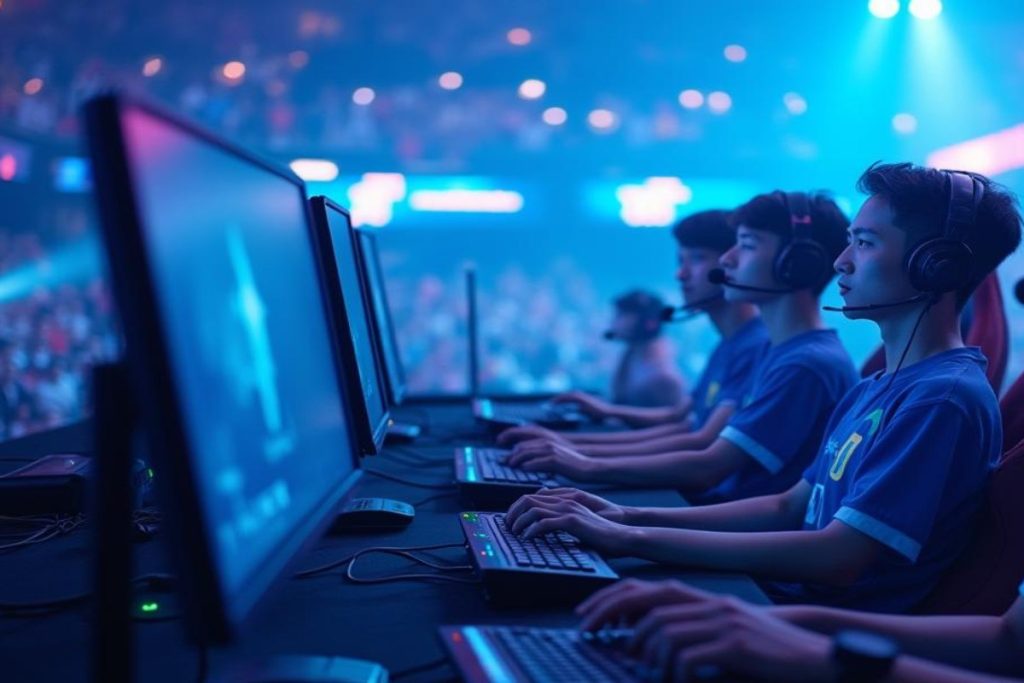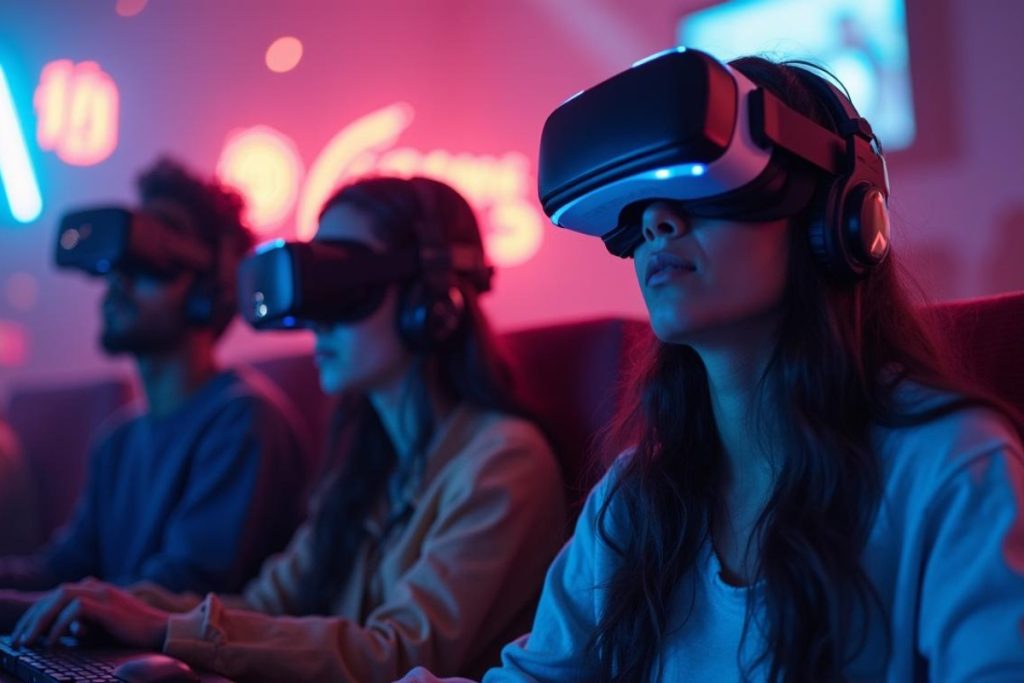In a surprising incident, the TSA (Transportation Security Administration) recently confiscated a replica of the iconic Call of Duty Monkey Bomb, causing quite a stir online. This perplexing moment occurred when a traveler attempted to take the Monkey Bomb toy through airport security at Boston Logan International Airport. Styled after the in-game explosive device, the Monkey Bomb is known for its ability to distract enemies in the popular video game series. However, the TSA’s quick response emphasized their strict policies against bringing any replica explosive devices onto planes, even if they’re harmless collectibles. Fans of Call of Duty and the gaming community reacted with mixed feelings, questioning the agency’s decision as they shared their disbelief on social media.
The recent TSA confiscation highlights the challenges faced by airport security when dealing with items that resemble weapons or explosives, even in a playful context. The incident involving the Call of Duty-inspired Monkey Bomb, which resembles a toy rather than an actual threat, raises concerns about regulations regarding replica devices. While many enthusiasts enjoy collecting these video game replicas, airport protocols prioritize safety above all, causing confusion for passengers. As it seems, what can be a fun nod to gaming history might easily be misinterpreted as a security risk in transit. In light of this, it’s essential for travelers to understand the boundaries of what constitutes acceptable carry-on and checked baggage to prevent such mix-ups.
The TSA’s Role in Airport Security: Keeping Passengers Safe
The Transportation Security Administration (TSA) is crucial in maintaining airport security and ensuring the safety of passengers flying across the United States. With millions of travelers passing through security checkpoints daily, TSA agents meticulously screen bags and personal items, detecting potential threats that could jeopardize air travel. This stringent security process includes the identification of replica items that, while harmless in nature, can raise alarms due to their resemblance to real weapons or explosives.
The TSA not only focuses on real threats but also educates the public regarding what items are permitted during air travel. Social media posts showcasing confiscated items often serve as a reminder to passengers about the necessity of following TSA regulations. For instance, a recent incident involving a Call of Duty Monkey Bomb replica emphasizes the humorous yet serious side of security. Passengers need to be aware that even seemingly innocent items can be interpreted as contraband, leading to their confiscation during TSA screenings.
Insights into the TSA Call of Duty Monkey Bomb Incident
The TSA’s recent seizure of a mobile phone charger designed as a Call of Duty Monkey Bomb has sparked discussions on social media about the boundaries of airport security. The incident occurred at Boston Logan International Airport, where TSA officers discovered the replica explosive device in a passenger’s checked baggage. While the fictional Monkey Bomb serves as a distraction tool in the popular video game, its lookalike representation raises eyebrows in real-life security contexts, illustrating how easily toys can be misinterpreted as potential threats.
Following the TSA’s announcement on platforms like Facebook, the response from the public reveals a divide between gaming culture and security regulations. Many individuals criticized the confiscation, arguing that this was merely a toy resembling a gaming artifact rather than a true threat. However, the TSA’s message is clear: protecting passengers often means erring on the side of caution, even if it results in upsetting fans of the franchise. This incident reinforces the importance for travelers to be mindful of how their belongings might be perceived by security personnel.
Understanding TSA Confiscation Policies for Replica Items
TSA confiscation policies are designed to ensure that nothing poses a threat to aviation security, even if that item is a poorly disguised replica. Items designed to resemble weapons or explosives—such as the Call of Duty Monkey Bomb—are categorized as contraband, and the TSA actively works to prevent such items from entering the aircraft. This policy illustrates how the agency remains vigilant against any threat, real or perceived, to maintain high standards of safety during air travel.
The implications of confiscating replica items extend beyond mere enforcement; they factor into the broader narrative surrounding travel experiences. Passengers often share their disenchantment online, revealing frustrations over what constitutes a weapon or toy. An important takeaway from this discourse is the necessity for travelers to research TSA’s regulations on replica items and to be mindful of how potentially harmless objects can affect their journey through airport security.
The Impact of Social Media on TSA Operations
Social media has become a significant platform for the TSA to engage with the public and share insights into their operations. By highlighting unique confiscations, such as the Call of Duty Monkey Bomb incident, the TSA not only informs travelers but also entertains them. Posts that go viral can lead to discussions about security protocols and the need for compliance with regulations. These platforms serve as invaluable tools for education, explaining why certain items cannot be transported and demystifying the rationale behind airport security measures.
Moreover, social media engagement helps the TSA gauge public response and iterates feedback on their services. User comments on TSA posts about confiscated items often reflect a mix of humor, confusion, and frustration, prompting the agency to reconsider its communication strategies. This dynamic interaction can enhance understanding among travelers regarding what is permissible, ultimately contributing to a more seamless travel experience.
Navigating Airport Security: Tips for Travelers
Navigating airport security can be a daunting task, especially for those who are unfamiliar with TSA regulations. To avoid unexpected confiscations, passengers should familiarize themselves with the list of prohibited items, which includes everything from real weapons to replicas that may resemble explosives. Educating oneself prior to travel is the best strategy for ensuring that all belongings meet TSA’s guidelines. Awareness about specific categories, such as the TSA’s stance on replica items like the Call of Duty Monkey Bomb, can prevent cumbersome situations at security checkpoints.
Additionally, travelers should consider packing their belongings with TSA regulations in mind. Disguising a phone charger as a toy could lead to complications during inspections, as seen in recent incidents. By packing carefully and being honest about items being transported, passengers can ensure their journey is smooth from check-in to boarding. Staying informed and prepared is essential for a stress-free airport experience, minimizing the chance of having belongings seized.
The Emotional Side of TSA Confiscation: Public Reactions
The emotional repercussions of TSA confiscation incidents can often influence public perception of airport security processes. When fans of video games, like the Call of Duty series, see beloved items like the Monkey Bomb being targeted, it can cause frustration and resentment toward the TSA. Many individuals use social media as a platform to voice their opinions about potential overreach and the practicalities of confiscating benign replicas. This emotional engagement illustrates how personal attachment to culturally significant items can clash with regulatory frameworks.
Moreover, public discussions stemming from TSA actions can impact how well the agency communicates its decisions. The emotional reactions often reflect a lack of understanding regarding security protocols, necessitating clearer communication from the TSA. By addressing these sentiments through informative content on social media and official channels, the agency can foster better relationships with the public, ensuring travelers feel respected while still adhering to necessary security measures.
Learning from Controversies: The Future of TSA Policies
Controversies surrounding TSA policies, such as the confiscation of a Call of Duty Monkey Bomb replica, ultimately lead to reflections on future regulations and security measures. As gaming culture becomes more embedded in everyday life, the TSA may need to adapt its approach to replica items in a way that acknowledges their cultural significance while maintaining strict security protocols. Engaging in dialogues with the gaming community could help to bridge the gap between security requirements and public sentiment.
This evolving relationship emphasizes a need for the TSA to be both vigilant and flexible. By continuously updating guidelines and communicating openly about the reasons behind certain decisions, the agency can work towards a balanced approach that respects the creative expressions of fans while ensuring travel safety remains uncompromised. The future of TSA policies may lean toward fostering understanding and awareness, permitting more traveler engagement without jeopardizing security.
The Significance of Replica Item Awareness
As the gaming industry generates replicas that mimic weapons or explosives, it is increasingly crucial for travelers to be aware of how these items can be perceived by airport security. Items like the Call of Duty Monkey Bomb serve as reminders that not all objects are benign in the eyes of TSA officers. Understanding the significance of these replicas can help fans make better decisions about what to bring aboard flights—preventing potential confiscations and disruptions to their travel plans.
Furthermore, fostering awareness about replicas among travelers positively impacts airport safety protocols. Passengers who are informed about the TSA’s restrictions on seemingly innocent items contribute to a more efficient travel experience for everyone. Whether it’s to avoid unforeseen issues during security screenings or to adhere to TSA guidelines, educating oneself about regulations surrounding replica items is an essential aspect of modern air travel.
The Cultural Impact of Call of Duty on Society
The Call of Duty franchise has become more than just a game; it has saturated society with its cultural influences and has created a significant fan base. This popularity leads to the creation of various merchandise, including collectible items, like the Monkey Bomb. While these toys are enjoyed by fans for their nostalgia and connection to the game, they can unintentionally lead to complications when it comes to air travel due to security regulations.
Aspects of the gaming culture, reflected through collectible items and replicas, illustrate how deeply integrated such elements have become in everyday life. The TSA must navigate the fine line between protecting travelers and understanding the sentimental value that these items hold in the hearts of fans. This intersection highlights a broader conversation about cultural perceptions and safety measures, necessitating ongoing discussions between authorities and communities.
Frequently Asked Questions
What was the TSA’s action regarding the Call of Duty Monkey Bomb replica?
The TSA confiscated a Call of Duty Monkey Bomb replica because it resembled an explosive device. The item was discovered at Boston Logan International Airport during a routine inspection of a passenger’s checked baggage.
Why did the TSA seize the Monkey Bomb toy at the airport?
The TSA seized the Monkey Bomb toy because it was categorized as a replica explosive device, which is prohibited in both carry-on and checked baggage. Transporting such items can raise concerns for airport security.
What is the TSA’s policy on Call of Duty replicas and similar toys?
The TSA prohibits the transport of replicas, including Call of Duty toys like the Monkey Bomb, as they can be mistaken for real weapons or explosives, posing security risks. It is essential to leave such items at home when traveling.
How did the TSA handle the seizure of the Call of Duty Monkey Bomb?
The TSA humorously shared the incident on social media, illustrating their discovery of the Monkey Bomb replica and emphasizing that such items should not be included in travel baggage for safety reasons.
What are the implications of TSA confiscation of toys like the Monkey Bomb?
TSA confiscation of toys like the Monkey Bomb underscores the importance of being aware of airport security regulations. Travelers should avoid bringing items that could be perceived as replicas of weapons or explosives to ensure a smooth travel experience.
Can I bring a Call of Duty Monkey Bomb replica into the airport?
No, bringing a Call of Duty Monkey Bomb replica to the airport is not allowed. The TSA considers it a replica explosive device, which falls under items prohibited in both carry-on and checked baggage.
What should Call of Duty fans know about airport security and collectibles?
Call of Duty fans should be aware that while collectibles like the Monkey Bomb are fun, they may not be allowed in airport security settings. Always check TSA guidelines before traveling.
| Key Point | Details |
|---|---|
| TSA Seizure | A replica Monkey Bomb toy resembling an explosive was seized by TSA. |
| Location | The incident occurred at Boston Logan International Airport (BOS). |
| Social Media Reaction | The TSA shared the incident online, prompting various reactions from the public. |
| Public Response | Many criticized TSA for confiscating what they perceived as a harmless toy. |
| TSA Rules | Replica weapons and explosives are not permitted in carry-on or checked baggage. |
| Related News | Activision is updating crossplay features in Call of Duty Black Ops 6. |
Summary
TSA Call of Duty Monkey Bomb highlights the humorous yet significant interaction between TSA regulations and gaming culture. The TSA’s seizure of a toy replica resembling an explosive device serves as a reminder to passengers about security policies concerning replicas. It is essential for travelers to be aware that items resembling weapons, even in a playful context, are strictly prohibited in both carry-on and checked luggage, ensuring safety and compliance throughout the travel process.



